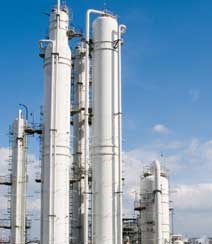 In what it claims to be a first, synthetic rubber producer Eneos Materials Corporation (formerly the elastomers business unit of JSR Corporation) has adopted the use of Yokogawa Electric Corporation’s Factorial Kernel Dynamic Policy Programming (FKDPP), a reinforcement learning-based AI algorithm, at its chemical plant.
In what it claims to be a first, synthetic rubber producer Eneos Materials Corporation (formerly the elastomers business unit of JSR Corporation) has adopted the use of Yokogawa Electric Corporation’s Factorial Kernel Dynamic Policy Programming (FKDPP), a reinforcement learning-based AI algorithm, at its chemical plant.
This agreement follows a successful field test in which this autonomous control AI demonstrated a high level of performance while controlling a distillation column at this plant for almost an entire year. This is the first example in the world of reinforcement learning AI being formally adopted for direct control of a plant, say the companies.
Over a 35-day (840 hours) consecutive period, from 17 January to 21 February 2022, this field test initially confirmed that the AI solution could control distillation operations that were beyond the capabilities of existing control methods (PID control/APC) and had necessitated manual control of valves based on the judgments of experienced plant personnel.
Following a scheduled plant shut-down for maintenance and repairs, the field test resumed and has continued to the present date. It has been conclusively shown that this solution is capable of controlling the complex conditions that are needed to maintain product quality and ensure that liquids in the distillation column remain at an appropriate level while making the maximum possible use of waste heat as a heat source. In so doing it has stabilised quality, achieved high yield, and saved energy.
In this field test, the autonomous control AI demonstrated the following four benefits:
1. Year-round stability
The autonomous control AI maintained stable control of the liquid levels and maximized the use of waste heat, even in winter and summer weather, with external temperature changes by about 40ºC. No problems were observed, and stable operation and high product quality were achieved throughout the field test.
2. Reduced environmental impact
By eliminating the production of off-spec products, the autonomous control AI reduced fuel, labor, and other costs and efficiently used raw materials. While producing good quality products that met shipment standards, the autonomous control AI reduced steam consumption and CO2 emissions by 40% in comparison to conventional manual control.
3. Lightened workload and improved safety
The autonomous control AI eliminated the need for operators to perform manual inputs. This decreased workload and helped prevent human error, reduced mental stress levels, and improved safety.
4. Robustness of the AI control model
Even after modifications were made at the plant during a routine maintenance and repair shutdown, the same AI control model could remain in use.
Eneos Materials says it found over the course of this one-year verification process that the autonomous control AI was a robust system that could achieve stable performance and optimise operations throughout the year, including in winter and summer. The company will look into applying this AI to other types of processes and plants and will continue working to improve productivity and save energy by expanding the scope of autonomisation.
To promote plant autonomy, in February, Yokogawa launched the provision of an autonomous control AI service for edge controllers, also a world first. In conjunction with this service, the company adds it is offering customers who wish to achieve autonomous plant operations a global consulting service that covers everything from the identification of control issues to the investigation of optimum control methods and the calculation of cost-effectiveness and includes safety, implementation, maintenance, and operation.
